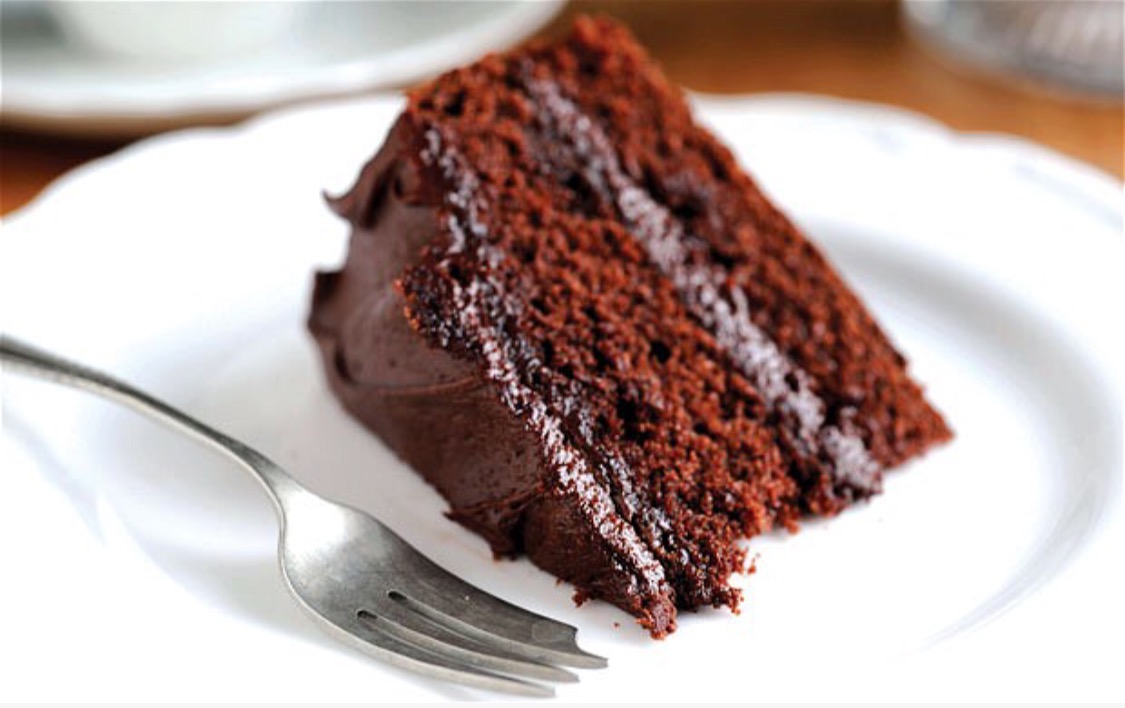
It sounds too good to be true but new research says having dessert – along with the traditional fry up – burns off the pounds.
Morning is the best time to consume sweets because that’s when the body’s metabolism is most active – and we have the rest of the day to work off the calories, a new study shows.
Eating cookies or chocolate as part of breakfast that includes proteins and carbs also helps stem the craving for sweets later.
Researchers split 193 clinically obese, non-diabetic adults into two groups who consumed either a low-carb diet that included a 300-calorie breakfast or a balanced 600-calorie breakfast that included a chocolate cake dessert.
Halfway through the 32-week study both groups had lost an average of 33 lbs per person. But in the second half of the study the low-carb group regained an average of 22 lbs per person – while the dessert gorgers lost another 15 lbs each.
At the end those who had consumed a 600 calorie breakfast had lost an average of 40 lbs more per person than their peers.
Although both groups consumed the same daily total calories – the men 1600 calories per day and the women 1400 – “the participants in the low-carbohydrate diet group had less satisfaction and felt that they were not full,” said Professor Daniela Jakubowicz.
Their cravings for sugars and carbohydrates were more intense and eventually caused them to cheat on the diet plan.
This also suggests that the dessert group will be more successful at keeping the weight off, said the researchers whose findings are published in journal Steroids.
Prof Jakubowicz said: “But the group that consumed a bigger breakfast, including dessert, experienced few if any cravings for these foods later in the day.”
Prof Jakubowicz, of Tel Aviv University, said attempting to avoid sweets entirely can create a psychological addiction to these same foods in the long-term.
A meal in the morning provides energy for the day’s tasks, aids in brain functioning and kick-starts the body’s metabolism, making it crucial for weight loss and maintenance.
And breakfast is the meal that most successfully regulates ghrelin, the hormone that increases hunger, said Prof Jakubowicz.
• Two bars of chocolate a day ‘lowers risk of stroke and heart disease’
While the level of ghrelin rises before every meal, it is suppressed most effectively at breakfast time.
Basing their study on this fact, the researchers hoped to determine whether meal time and composition impacted weight loss in the short and long term, said Prof Jakubowicz, or if it was a simple matter of calorie count.
She said one of the biggest challenges that people face is keeping weight off in the long-term. Ingesting a higher proportion of our daily calories at breakfast makes sense.
It’s not only good for body function but it also alleviates cravings. Highly restrictive diets that forbid desserts and carbohydrates are initially effective but often cause dieters to stray from their food plans as a result of withdrawal-like symptoms. They wind up regaining much of the weight they lost during the diet proper.
Ultimately this shows a diet must be realistic to be adopted as part of a new lifestyle. Curbing cravings is better than deprivation for weight loss success, said Prof Jakubowicz.
By Telegraph
Click here to shop our top recommended fitness and health supplements





